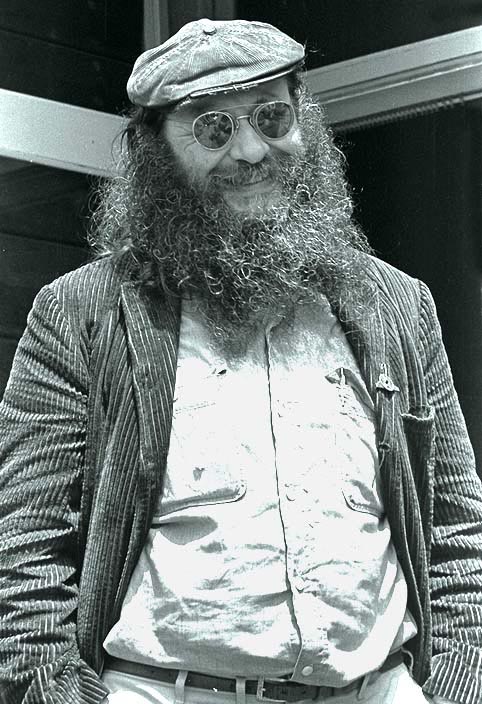
Photo by Robert Altman
< STORIES, ARTICLES, & RECOLLECTIONS
Berkeley Barb: Ex-staffers Recount Underground
Newspaper's Founding 50 Years Ago
by Sarah Rohrs / originally appeared in the Vallejo Times-Herald
BERKELEY (August 14, 2015) – It's a 1960s moment Ken Wachsberger will never forget. While hitchhiking up the California coast a VW bus pulled over and he climbed inside, instantly enveloped in marijuana smoke.
When someone handed him a copy of the underground Berkeley Barb newspaper, he knew he would be forever changed. "The Berkeley Barb was outrageous and irreverent and showed me that there was something different out there that I couldn't ignore," Wachsberger said. Wachsberger was one of many on hand this week for a 50th-year celebration of the Barb, a leader among the underground newspapers established in the '60s. Wachsberger, who now teaches writing at Eastern Michigan University, is intent on putting the Barb and other underground newspapers into a digital format for future readers. Concerts, art shows and a day of speakers and panel discussions Thursday at the Central Library also allowed many to recount Berkeley's days as the epicenter of '60s counterculture, and the role the Barb played. Though it had a strong local news focus, the Barb also took on national and international issues. For 15 years, the Barb covered People's Park, the Vietnam War, civil and gay rights, the sexual revolution, the Black Panthers, police brutality, harassment of "long hairs," and other issues of the day. This week's events served as a reunion for former staff members who sold ads, distributed the papers, wrote stories. Some eventually led a strike that resulted in formation of the Berkeley Tribe newspaper. Many told stories about founder Max Scherr, a tough editor known for his larger-than-life personality and passion for skewering the establishment. He was also notorious for not paying his employees well and pinching pennies whenever possible. A few speakers said sexism was rampant and women had few opportunities. Fellow editor Art Kunkin, founder of the L.A. Free Press, said new innovations in typesetting allowed the Barb and many other newspapers to take off. While the Barb was one of the first underground newspapers of the '60s, it was by no means the only one or even the first. Kunkin said he met with Scherr and advised him on how to get started. As the Berkeley Barb reached the East Coast and points overseas, it's said that civil rights leader Dr. Martin Luther King Jr. also got a copy, and it changed him, too. A story and photo essay on the children of Vietnam helped convince King to publicly denounce the Vietnam War, said Peter Richardson, author of a book on a Barb contemporary, Ramparts magazine. Scherr, the owner of Steppenwolf bar and coffee shop on San Pablo Avenue, put out his first paper on Aug. 13, 1965. The World War II veteran was a longtime political activist and union organizer. Scherr's daughter Raquel spoke of how he developed the Barb 's distinctive logo -- a Don Quixote figure on a horse holding a lance with the UC Berkeley Campanile as its point. From the beginning, recalled former ad director Michael Korman, he and other staff members were "always on the run," to sell ads, write stories and get out the paper. He recalled that the Barb dealt mostly in cash, and doesn't think it ever had a checking account. John Jekabson, who went on to a long reporting career for Pacific News and other organizations, jokingly said his first meeting with Scherr lasted 10 hours. Jekabson, a UC Berkeley Graduate School of Journalism student at the time, said the Barb was a great training ground. "I learned more about journalism in two weeks working for Max than I did in two years of graduate school," he said. For some the week's reunion was an emotional time to remember a special time and place. Leo Laurence covered the early gay rights movement and welled up with tears talking about those pivotal years and the role the Barb played empowering homosexuals to come out of the closet. "Thank you very much for celebrating this wonderful newspaper," said Laurence who flew in from San Diego for the reunion. Former classified ad manager Judy Gumbo, a longtime activist, said it's vital to remember the paper's role and mission, adding, "The issues that we wrote about in the Barb are still happening today." Scherr closed up shop in 1980 and died the following year. A poster exhibit and other displays at the Central Library help tell more chapters of his and the Barb 's story, which was the subject of events all week at Berkeley venues.